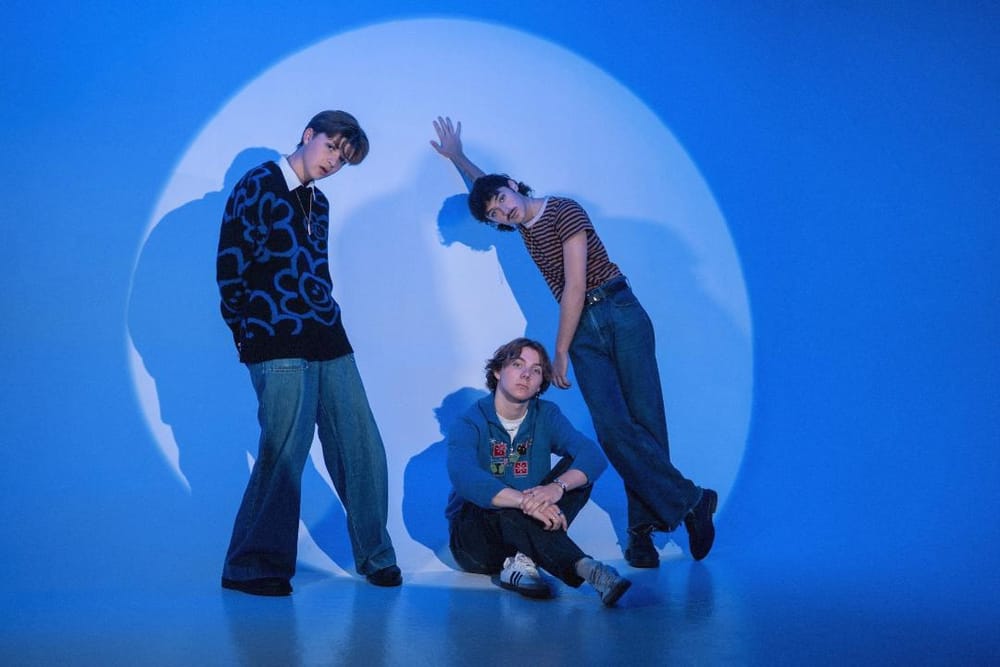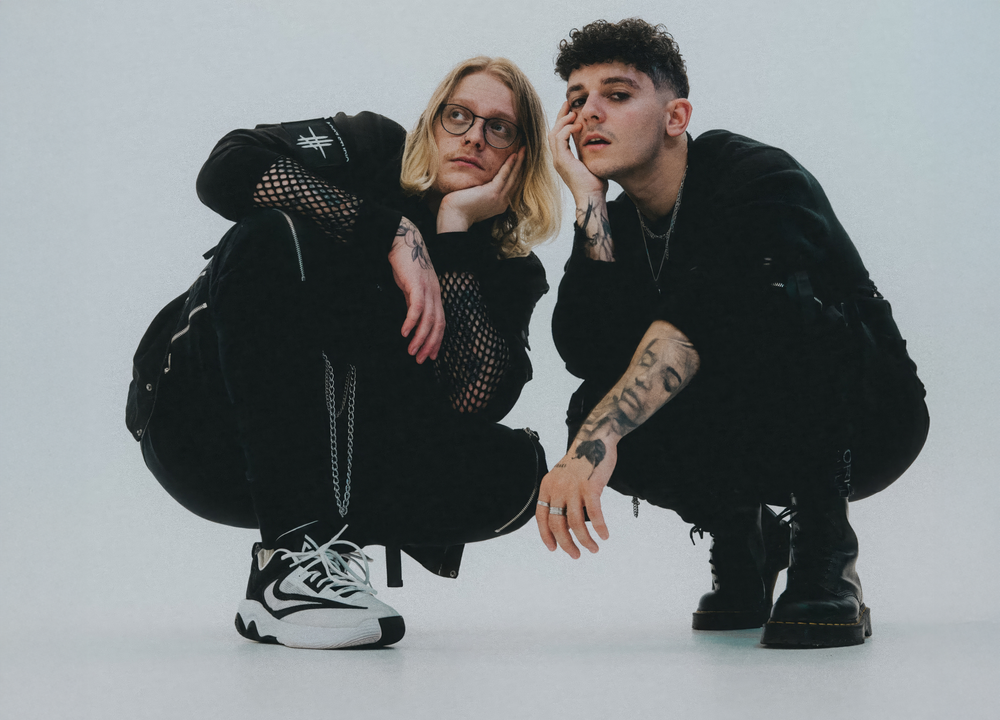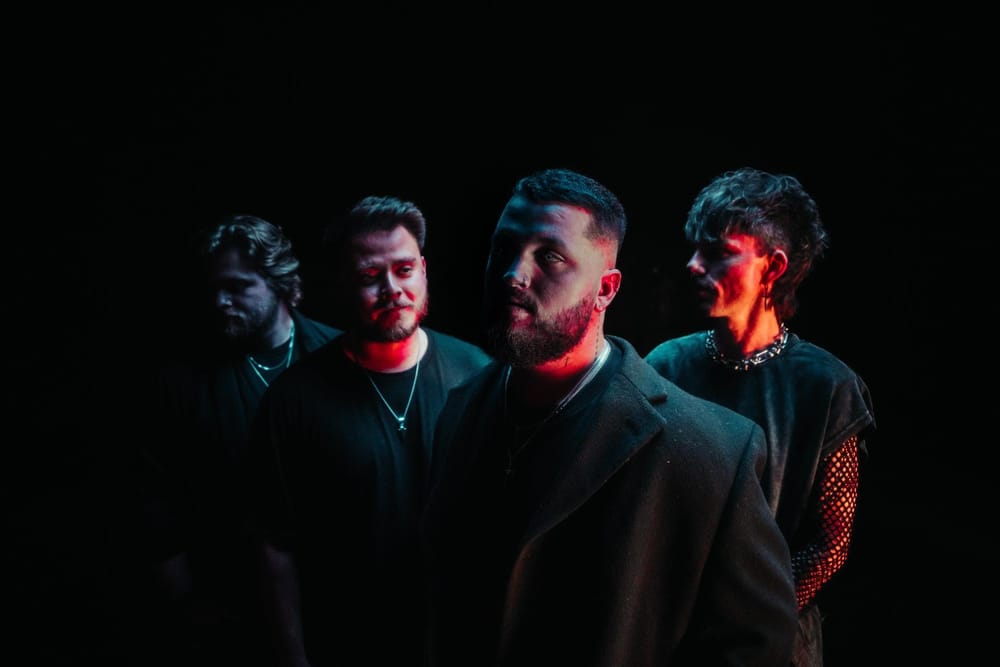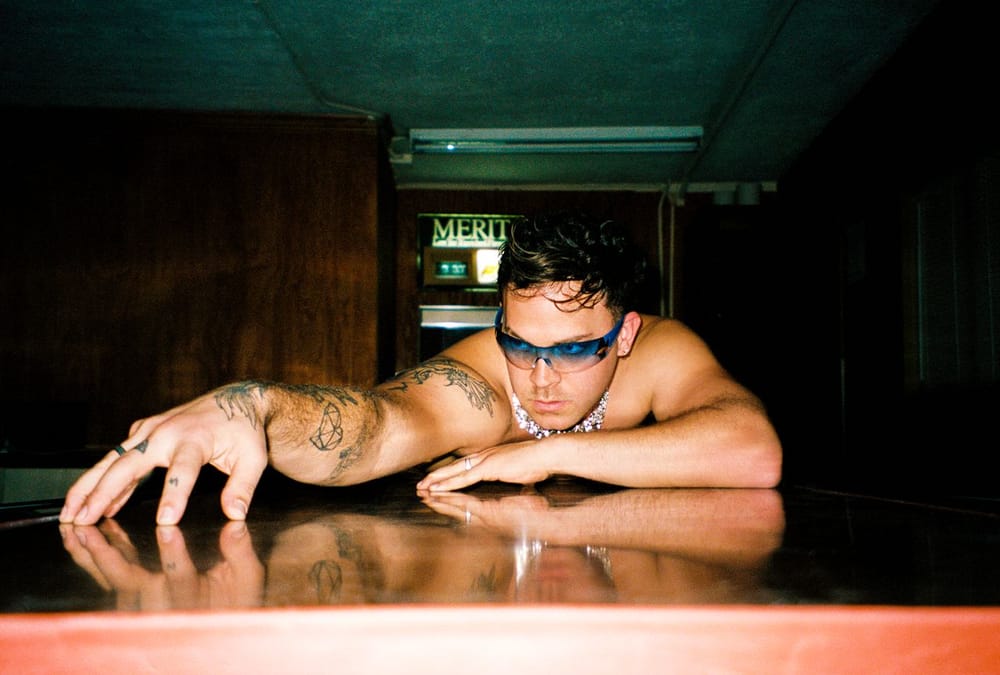The amount of talent in the music industry has always blown my mind, especially when you discover new artists of all different genres. Wildflower Mind should be on that list of artists you need to check out and give a listen to. Emerging from Phoenix, Arizona, with a sound that embodies contemporary pop and gives you that calming, feel-good effect all at the same time with each listen. The guys poured their heart and soul into their latest album, Go, Indigo, and have really shed passion into each song on the track list. I recently had the chance to chat with the guys about how Wildflower Mind formed, what the creative process was like on their album, and what they are most proud of on this latest project. Here's what they had to say.
Can you share how Wildflower Mind came together? What also inspired the name?
Grant: We all were kind of into music in high school, and I was in a band, and he was in a band, so eventually we started playing some of the same shows at our school together, and we were like, "Why don't we start working together?" and maybe figure out how to combine the two acts, joining forces. We had some missing gaps in our band and some in his. Henry was a friend of a friend, meaning we played guitar. We needed a guitar player, so we were like, "Heck yeah, let's throw this whole thing together." We started playing just some shows at our school for a while that we put together ourselves because we wanted to play, and some of our teachers would let us leave class during lunch to go play.
Connor: It's a good excuse.
Grant: Then after that, we were like, "Maybe let's get into trying to take it more seriously," because it was very fun for a while. It was kind of just a fun thing to do. Then, we sort of just looked around, played some open mics, booked some places, and made connections. Now we're playing as often as we can and continuing to put together more shows. Then, Connor came up with the name.
Connor: Yeah, so we had a different name when we started that just came about after we booked our first show. We were like, "Let's just do this." We needed a name in order to book.
Henry: We were functioning without a name for a while.
Connor: Yeah, we were functioning without a name for a while. I was listening to one of my favorite songs in the world, and Wildflower was in it. We were trying to throw out names to see if something would stick, and we threw out Wildflower Mind. At first, I think we were all a little like, "Uh, you never know."
Henry: I mean, the biggest draw is that you don't see very many Wildflower Minds. If you search that up, it's us.
Grant: That was really the thing. Is it searchable?
Connor: Yeah, is it searchable. Can people recognize it as us and no one else had the name. I think the first thing I did when I thought of the name was, "Ok, I'm going to look at Spotify and Apple Music, and if there's no one else that has that name, then that's my vote."
Grant: We were called "them" at first, and that was just not searchable, and many people told us it wasn't, so we were like, "Ok."
Henry: Even telling people face-to-face was confusing; we were like, "I'm them."
Connor: What are you talking about? So, yeah.
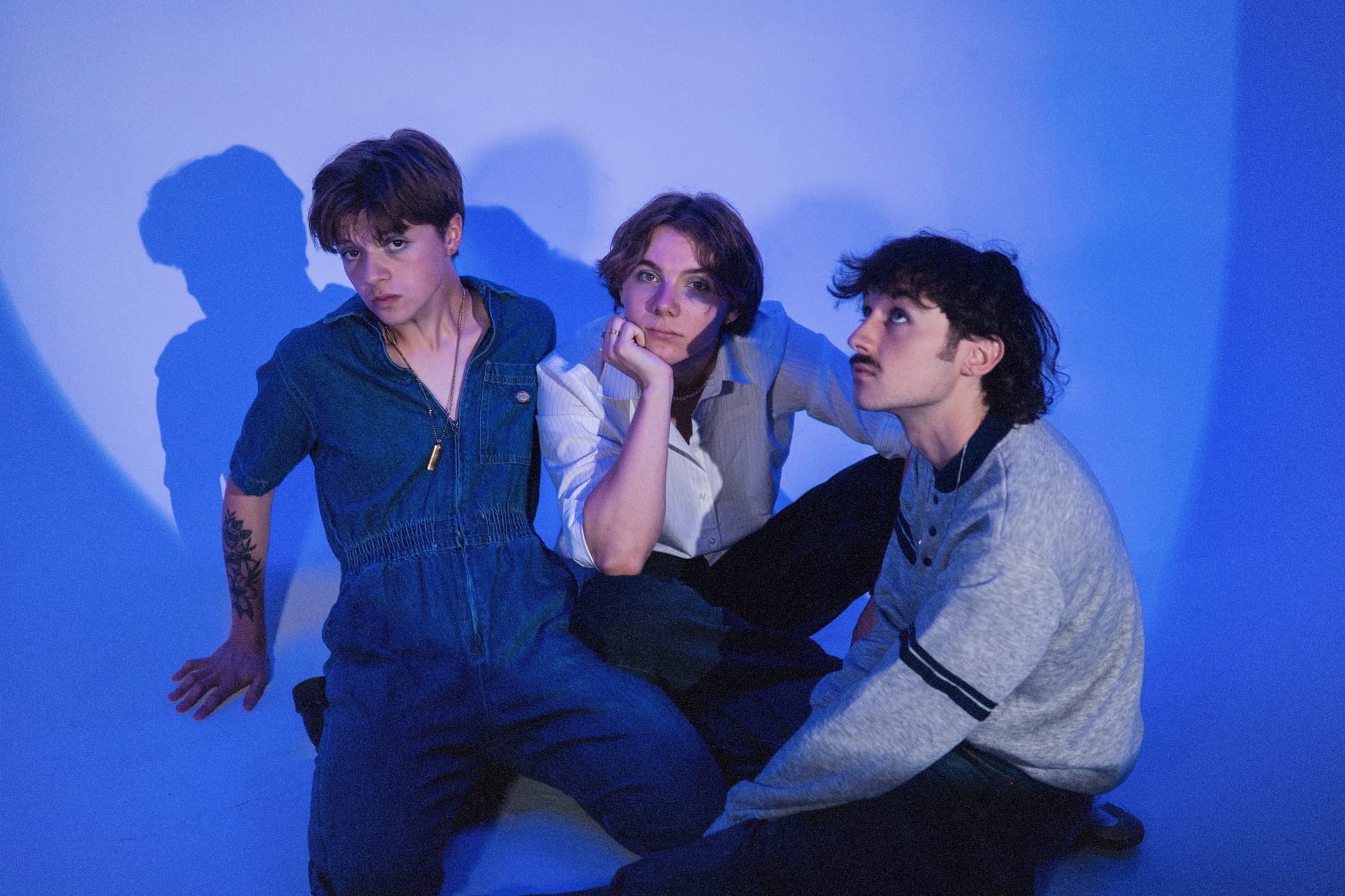
What has been the most surprising or challenging part of your musical journey so far?
Henry: Making an album with three writers was kind of hard. We had to work through exactly how we wanted to maintain respecting each other but also just kind of getting in our way. So, we basically just wanted to make sure that we all had a say and weren't just getting trampled over. What I mean is, with the three of us, it's really easy for somebody to have an idea and the other two to just overrule it because it's a majority vote. So, working through making a system where we all feel like we can have an effect helps too. We got through that relatively quickly, so the rest of the album-making process was just a fun little thing. We made an EP before, and that was just a little bit of a disconnect on all fronts, but on the album we really got to mature in a lot of ways sonically and also just as a band. We were writing together and making something that we were all proud of.
Connor: I think another challenge was also trying to find a sound that was cohesive throughout a whole album because for a while, it was kind of what Henry said. Our first EP, you know, as much as we love it, it was definitely our first try at making whatever we thought we liked, and it wasn't very cohesive. So, looking at our new record, wanting to make it cohesive, and wanting to have a sound throughout it that you can kind of tell, like, "Oh yeah, that's Wildflower Mind." We want to have that sound, so coming up with that sound was hard for a while. There were a lot of trials that we went through when we were like, "We like where this song is, but maybe it's not the right vibe, so let's try and add some more to it to be cohesive with the others." That was definitely something that we had to work on, but I think once we got that sound and once we knew what we wanted to achieve, it became so much easier just to get in there and be like, "Ok, let's do it."
Grant: We had to kind of develop the same set of go-to sounds for specific things. So, you'll listen to a band sometimes, like Queen, and you'll hear those harmonies. That's the biggest thing about Queen. You'll listen to them, and they're just dialed in on those vocal stacks, and that's what people remember about Queen. When you're listening to any kind of band, you hope they have that distinguishing feature. For us it was about finding that certain sound, like, "Do we want to be the band that does a lot of harmonies? Do we want to be that band that's ripping a guitar solo in every song? Do we want to be the band that has an emphasis on lyrics over instrumentation?" So I think making the first five was figuring that out, and the last five was honing in on that and locking that down.
What does the creative dynamic look like between you all when writing or recording?
Connor: I think it kind of just depends, honestly. There will be times when Grant will write a song, and then him and Henry will go in and do the song and then just send it to me. I'll be like, "Yeah, that's cool," and if I feel like I can add anything, I'll pitch it, but if not, I'll be like, "That's great!" Sometimes it's just me and Grant that go in there, and I have a song written, and Grant helps me write the rest of it or the second verse. Sometimes it's all three of us. There are songs on the record where it was all three of us, just pitching lyrics and ideas to try and see if it would stick. We don't really have, I would say, a complete system in terms of songwriting. If the whole song is written and we like it, then great, and let's just go from there, but if there is some work that we want to do, then we address that and try to go from there. We still try to make it a collaborative effort.
Grant: We all kind of acknowledge that having your song be worked on by everyone in the band is definitely a good thing for everyone. For sure all of us are going to have strengths and weaknesses. There are going to be times where sometimes my strength was the writing, but when I get into making the instrumental, I can't play the guitar part that I needed to play, so I have to have Henry come on and think of something. So, having that system in place where even if one person writes the whole lyrics of the song, everyone else gets to work on it and make it sound like a band is making this song rather than one person writing the whole song. I think that's the way it is with most bands and the way they probably handle it.
Henry: There's usually one creative spearhead. So, if you write the song, then you just have to come up with some sort of skeleton or structure. It honestly depends; sometimes you write the whole song and you know how you want it to be, but most times you have a skeleton, and that's when you pitch it to the other two. You're like, "How do we make this one of our songs and not just something I'm riffing on?"
For your latest single "Patina," the song creates such a strong emotional setting- can you share what inspired you guys when it came to shaping that sound?
Connor: Yeah, so I wrote Patina, and I was literally just strumming guitar chords and started coming up with the lyrics and wrote the song. Then when we were in the studio, immediately when I started playing that, "Again, again," like that thing. It was one of those songs that kind of formed itself. We defiantly wanted some cool vocal stacks in there and some just very atmospheric guitar tones. Especially with the acoustic guitar too, it's definitely one of the more acoustic songs on the record that we have for sure. Usually with our second verse, we were a lot of the time trying to add more sometimes. This was one of the first times that I felt when we were trading the song, we were like, "Maybe let's tone it back a little bit. Take everything away and then bring it back in." So, yeah, it just kind of made itself. It was one of those projects where it was really just like a flow state. It was pretty straightforward. I had the skeleton, and me, Grant, and Henry just got in there and wrote it, just real quick. It wasn't too long of a process. Which is great because when a song comes together like that, it always feels good. Obviously you love the songs that take a really long time because it's like a love-hate relationship, kind of, but the songs that come out just like that are great because you're like, "Oh, that was perfect!"
Henry: It's like with the songs that take a little bit longer, you're not losing direction, but it's kind of hard to know the next step. With a song like Patina, the reason you get that emotional response and you have a clear-cut idea is because that's how it was kind of made. Connor had the idea, and it was so easy for everybody to fall behind it and push that instead of having to come back with a different perspective because maybe we felt that we weren't gelling with the idea. Patina is just one of those songs where it kind of writes itself, and then we all add a little bit of embellishment.
Grant: It was a song for me, as the producer; when Connor came and played it for me, I could already hear what I wanted to do with the production. So, I can hear, like, what we wanted the drums to sound like, and sometimes when it's a song that Connor and I specifically work on together or Henry and I specifically work on together, it's great when he comes in with it. Sometimes you'll hear something completely different. As the listener, somebody is presenting you with the song. There was a time Henry played me a song on the piano, and I was like, "It would be really cool if we took this and did, no piano but, aggressive distortion guitars on it with big drums." This was a song where it felt like with his vision and my vision, and his vision, when he played it for us, we all knew, like, "Oh, this is the drum sound we're going to have in here. We're going to have some guitars here." That probably contributes to, I would say, all three of our singles. They ended up falling under that category or umbrella of all of us wanting the same product and getting that.
So you have a new album coming out on July 18th. What kind of sonic direction and lyrical themes can listeners look forward to on your new album?
Grant: Going into it, for sure with this album, I think we all kind of primed ourselves with a set of albums because when you come into making an album, you're obviously going to have influences. Most artists, and I feel like most bands, know what their next album is going to be like: "Ok, we're going to take this direction with this sound." We tried that whole thing with this album and maybe didn't feel like our full selves or full potential. So we were like, "What are the albums by bands that we love, and we felt they really honed in on there? This was them finding their sound and locking it down." We were like, "We need to find our favorite albums by those bands." We all made a point to be like, "Let's draw from this energy of a very full and complete-sounding album with all of the tones and styles we want to go for and all of that." While also imbued with the same energy we brought to our last project, which was, I think, more lyrically focused rather than sonically focused. There was still a lot of authenticity, don't get me wrong. None of us were going in there and pulling stuff out of nowhere. We were all writing what we felt was honest, but nailing down that actual soundscape that can be for the whole album–it's really about knowing the right kind of genre and the right kind of music that you want to draw from. So having everyone listen to those albums by all these bands that we love. Going into it, we're like, "Ok, now these songs will write themselves the way that's fresh in our minds. The way it gives us that clear direction." Especially when you have a band that comes from all different influences, like from the start of the band, it was kind of unclear which direction we would go with because this was an example of all 3 of us wanting to find a sound, and let's look for people in this area. We were what we had, and we had to figure out a way to synthesize all of those backgrounds into an album that we loved and kind of landed on this one sound that maybe isn't all of our favorite style of music or what we would all make if we were making solo music, but it feels very right to synthesize all those sounds in that way and make it come together as a band project. So, you end up with a good variety in the album while still maintaining that sonic consistency. There are songs where it's a lot of synth sounds, which we haven't really messed around with in our last record that much. There are songs where the lead is played by a synth instead of a guitar, and that's something we all appreciate despite the fact that we play guitar. We like playing guitar, but we love to incorporate those synth sounds, and that's something we might not do as solo artists. Then there are songs where we are going to go back to the traditional electric guitar strumming with those kinds of rock tones and still be saturated by harmonies and colorful melodies and things like that. The whole album is like a synthesis of that.
Henry: I think one of the things that helped the most when we were trying to come up with one specific sound was also not so much, like, thinking about exactly what we had to make but also what we wanted to lean away from. Obviously, there's distorted guitar or acoustic guitar on the album, but if we were going into a song, we had certain instruments or guitar tones that we wanted to lean away from because it kind of makes it ambiguous.
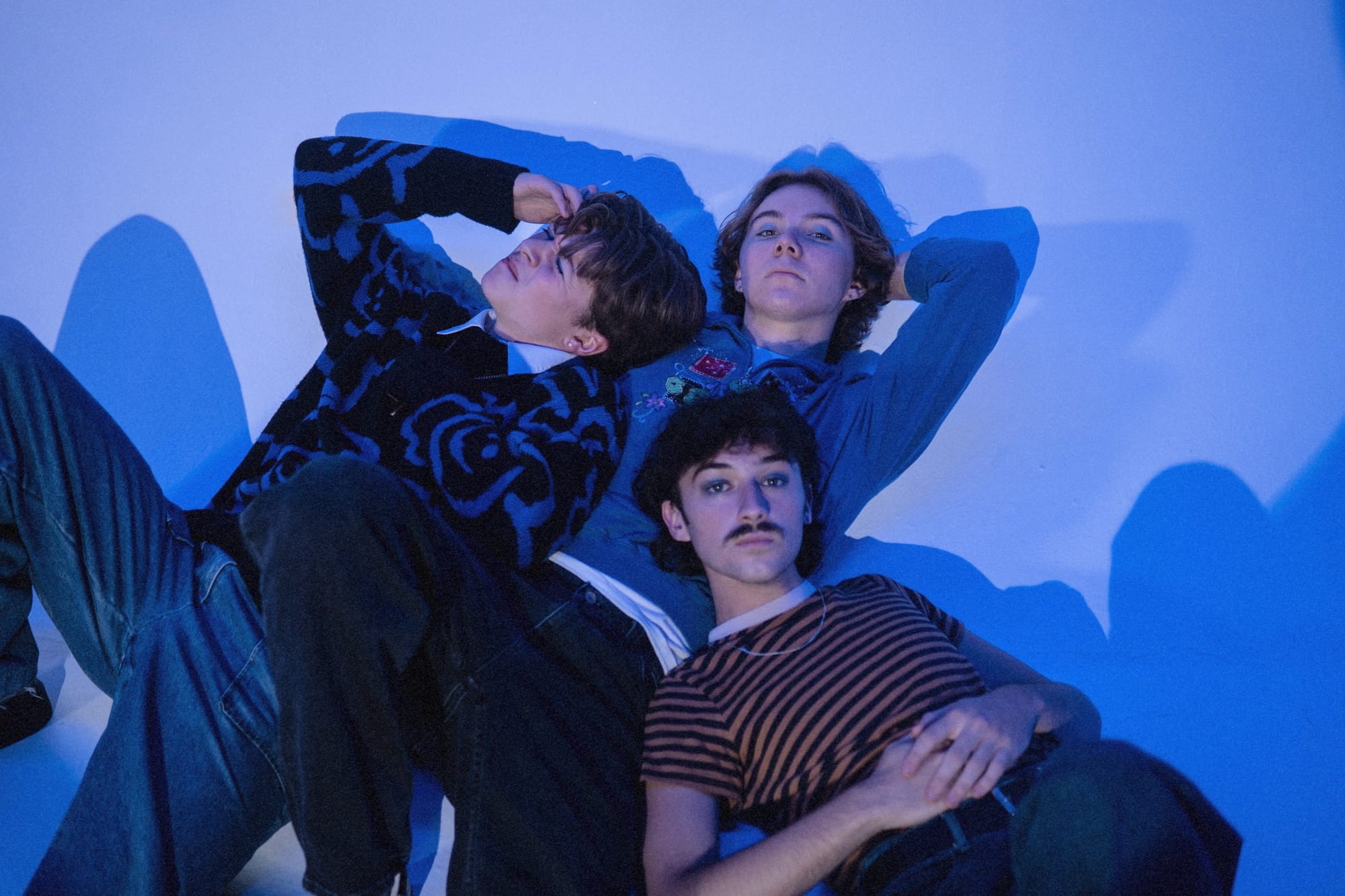
Grant: You gotta try something new to get away from what you're already doing. When it gets down to the more thematic angle of it, where it's like, "What are you supposed to take away at the end of the album?" It's called Go, Indigo, and I think that album title described this idea of a little bit of running away but also feeling like you're not the one who should be running away. There's a lot of exploration of identity, insecurity, and stability, particularly in relationships, but also feeling sound with yourself. We've embodied indigo as a number of things. It's been a car, it's been a person, it's been a mindset, but it's also been a hotel and a local coffee shop. It feels like the instinct is to just go, run away, or tell someone to go and run away. It feels like that whole album is that deconstruction of that feeling, and there are obviously a few moments of a few notes where it's very hopeful and energetic. Obviously there are going to be a few creative detours here and there. It's not a concept album. It's not; every song is about the same thing, or every song is in the deliberate order that conveys the story. Obviously it is a pop album, so there are times when we are going to take a detour from the main theme. Then when you kind of get into it and you look at those songs that are supposed to be more fun and energetic, and you just feel that energy of that song, it still feels like those in the context of the rest of the album really do end up serving that storyline. When you're on the road to deconstructing yourself and figuring yourself out, there are times when you're not completely sitting there thinking about it and trying to get all the answers all at once. I feel that pacing with the album really serves that narrative where you're not always going to be at point a and on your way to point b. So, the healing process and the self-discovery process aren't super linear in that way, but I think the album describes that process pretty linearly.
Are there any surprises or creative risks on this album that you're especially proud of?
Connor: Yeah, like what Henry and Grant were saying earlier with synthesizers. I think when we actually started the record, we started with a really, really, really pop sound, and then we eventually went into a pop alternative sound, so it still incorporates those live instruments. I'd say using synths as main melodies and one of the main instruments that's on, I think, every single song on the record was definitely more of a risk because last time there wasn't much of that. There was maybe one song on our EP or a couple songs on our EP that used that, but I think it was 3 that used it. I think it was something that we weren't sure of going in, but we wanted to accomplish it, and we were able to. I think sometimes we weren't wary of having it sound like too much of this and too much of that.
Henry: Too much of a good thing.
Connor: Yeah, I would say that was probably one of the creative risks. Also, with writing and things like that. I think taking the risk to try and come up with a cohesive message throughout. Kind of what Grant was saying, obviously there are detours and stuff like that, but just having something to say and something that is cohesive. When we first started, obviously it was a lot, like, "Oh, is this going to connect, or is this going to work?" You want to make sure it sounds cohesive, so that was a "risk," but I'm very glad that we took those steps in order to have a sound that we're really proud of, I would say.
Grant: I mean, it's a risk in general to be making pop music in Arizona. When people ask us, "What kind of music do you play?" Or if I'm at work and I tell my coworker, "Hey, I'm in a band," and this person asks me, "What kind of music do you make?" In Arizona, most of the time local shows tend to be very punky, and we love punk music. It definitely feels like you're a fish out of water, especially when telling other bands in the local scene what kind of music you make. It's a little harder when you don't find as many pop bands because you want to be on a bill with a band that represents your sound and gets people interested in you as well. If you mismatch those two things, then it's obviously not going to work out the way you planned. So, going for a sound that is pretty distinct from what we would hear at a local show is a little different. If we are going to be playing shows in this local area, then we have to win people over with that. So, I think overall, deciding that's the direction we want to go, I would say locally it's more challenging than globally. Obviously we're all happy to take it because we are going to make the music we want to make.
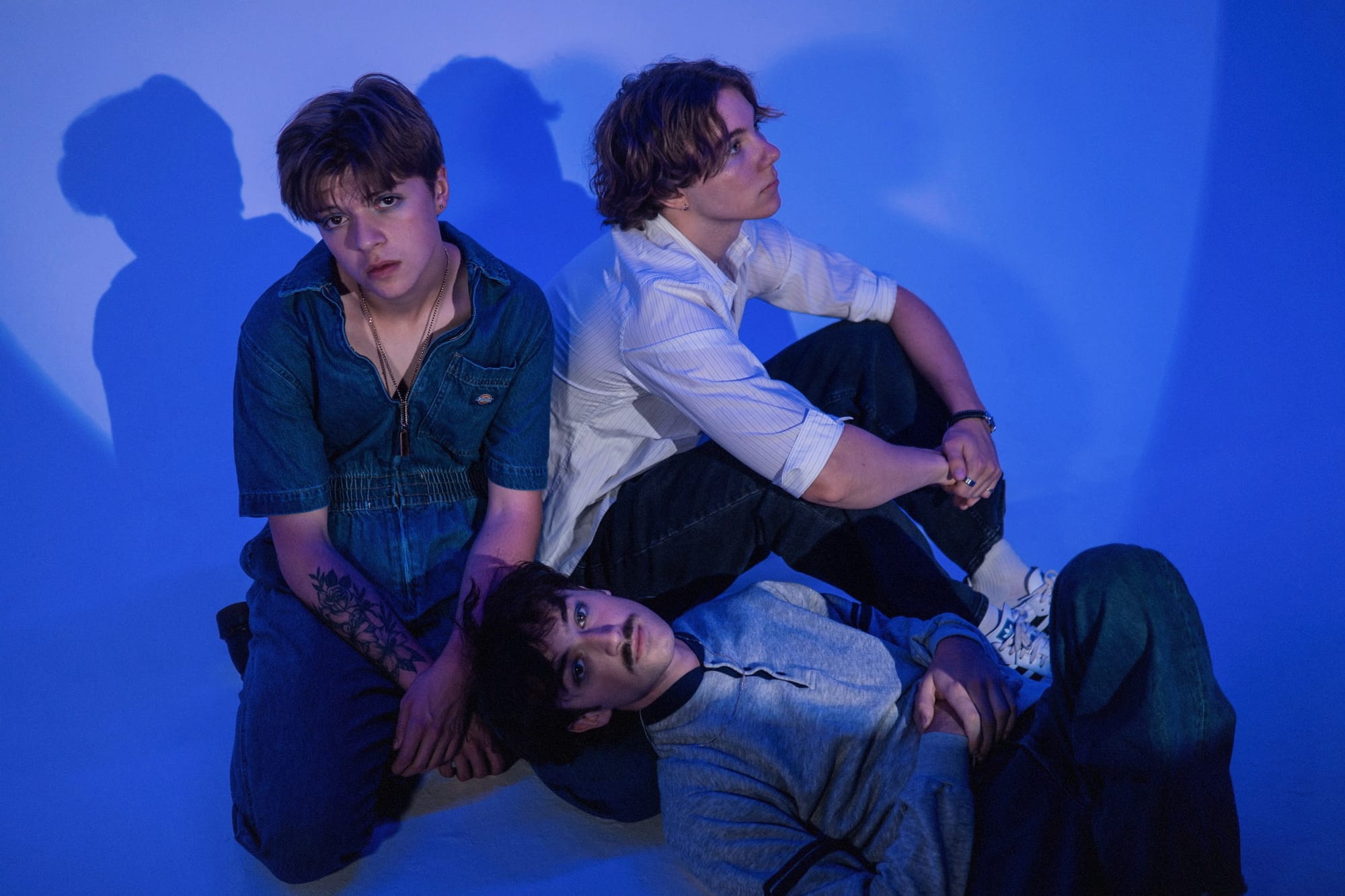
How would you sum up your sound for someone hearing your music for the first time?
Connor: Honestly, it's funny because usually when people ask me, "Oh, you're in a pop band," I usually tell them what I like to compare what are sound sounds similar to. Usually I'd say fans of Harry Styles, 5 Seconds of Summer, Hailer, and Spacey Jane. A lot of those bands and a lot of those artists we really like. I would say, if anyone were to listen to our music and were to explain what it is, I'd say it's a mix of synth pop and alternative rock chords with really fun pop melodies.
Grant: I mean that's pretty colorful.
Henry: That's what I would do. I'd say two other musical acts that I think that person knows so they can kind of get a better idea of what I'm trying to say. Throwing around too many buzzwords can get confusing when you're like, "alternative pop or contemporary." Really, you just have to expect a lot of hooks and earworms and a lot of interesting instrumentation.
Grant: Right, but with the lyrical substance.
Connor: It's good music!
Grant: That pretty much sums it up. I always like to think about what characterizes pop becoming a subgenre of another genre, like pop rock or pop punk. It's like the instruments and the energy of that genre with the melodies and progression structure that you would expect from pop. Like, verse, chorus, verse, chorus, bridge, and chorus with, obviously, a melody for the chorus that's very soaring and melodic, and a lot of harmonies. Things like that. I think that's what kind of saturates that subgenre. If it's pop rock, then it's going to have a lot of electric guitars, but it's still going to have those melodies and structure. In our case, it's alt-pop, where we are going to use a lot of guitars and synths and also throw the pop on that. So, that's probably the best way to explain it for someone who hasn't heard it to really understand.
Any final thoughts or messages you'd like to leave with your listeners and fans?
Connor: If you haven't listened to our album already, come to our shows.
Grant: We're booking shows for the last quarter of the year so stay tuned.
Connor: And we're really, really excited to show people the show. We're working really, really hard on making it a really great show.
Grant: As good as the album is for album standards, we're working on making sure that the show is really good for sure.
Connor: Come to a show if you haven't already.
Henry: We're big about our live performances. We're talking a lot about recording, but also live, we take a lot of pride in it. Having those seamless transitions and bringing the energy. If you're just listening to the album and not coming to the shows, you're missing out.
Grant: Let the shows speak for themselves. And there's merch. You can't really be cool unless you have merch.
